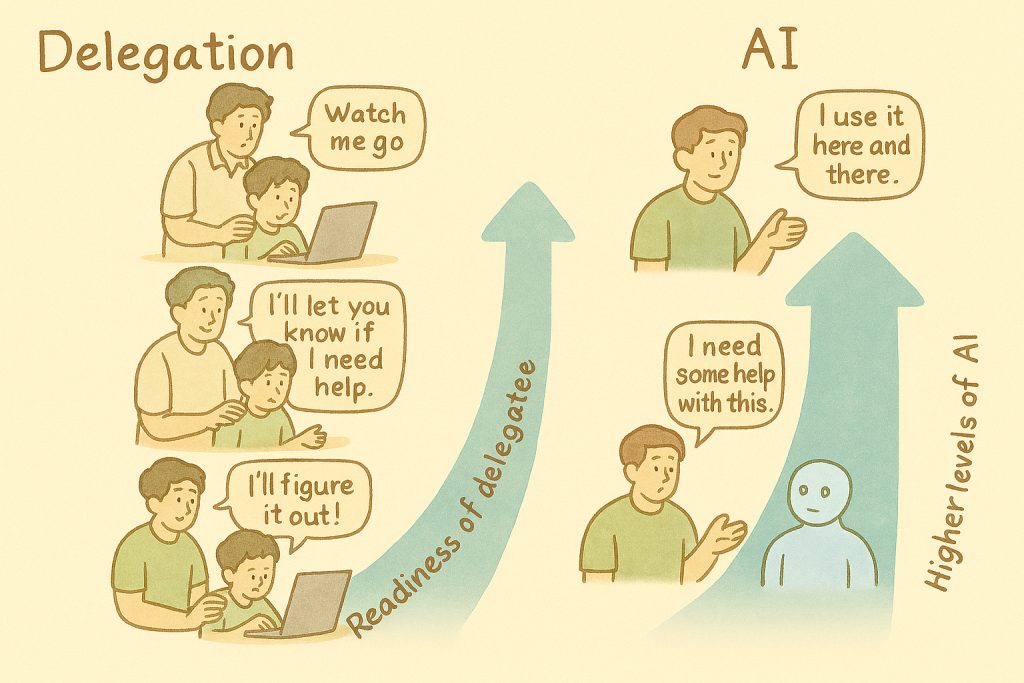When you talk about how effective you are as a leader or how leadership is measured, the almost immediate answer from most experts is that leadership is measured by followership. When a leader’s followership is high – as with the greatest international leaders during the last century such as Mahatma Gandhi, Martin Luther King or Nelson Mandela – or more recently in the technology sector like Bill Gates or Steve Jobs – their impact on outcomes that mattered was unbelievably high.
Your followership is, first and foremost, defined by your Intrinsic Motivation. Your high motivation is reflected in the passion you display, your enthusiasm and energy levels, and your communication effectiveness. Such enthusiasm is at once infectious with the team that you work with, helping them stay more engaged with the vision and goals. As a consequence, great results are a natural outcome.
Leaders who are intrinsically motivated are not deterred by short-term setbacks – they demonstrate focus and resilience in the face of such obstacles and setbacks. They are an inspiration and role model to the people they work with. This is not just with people reporting to them but even across other teams and groups that they have a chance to interact with. They stand out with their authenticity which, in turn, fosters trust and respect among the people they work with. Typically, such leaders have confidence in their abilities and a low feeling of insecurity. These, in turn, contribute to them providing an empowering environment for their teams to be motivated and thrive. They help build leaders for tomorrow, which is what your followership should ideally translate to.
We have seen this with our own experience at PM Power. The company was started in 2006 with four of us getting together to pursue our passion – Project Management. That was the time when certifications were the order of the day with relatively low attention to real competence in Project Management. We did not know if we would make money, or be successful. However, we were passionate about what we wanted to do, and created a PM competency framework with a program that was based on it. This program was spread over 4 to 5 months with a combination of experiential workshops, coaching and an assessment framework. The fact that some specific people or organizations we tried to work with didn’t fully understand or implement the spirit of our model didn’t deter us. Three to four years down the line we had trained and coached over 600 Project Managers – some of whom have gone on to become, in the next 10 years, business unit heads or engineering heads in their own or other organizations. As the market scene and expectations changed, this model and success has been replicated with phenomenal success in our Agile Transformation offering (50 to 60 organizations helped in 10 years) and more recently developing full-stack leaders (more than 150 leaders in less than 2 years) with our Leadership Development Framework. Every one of the PM Powerians (we have 18 of them now and have had nearly 30 who have worked with us during the last 18 years or so) has been driven purely by their Intrinsic Motivation with a passion to create a difference in the industry. It has truly been a dream journey for all of us.
So much about our PM Power experience to give context to the role of Intrinsic Motivation in effective leadership and the making of organizations. The reason I talked about this is because many leaders we coach today suffer from this lack of Intrinsic Motivation. This has a spiraling effect on their teams and their organization. It is not often that this is identified as an issue by their respective managers. What is visible is the lack of results and an inability to get the best out of such leaders or their teams (top of the iceberg in PM Power’s Iceberg Metaphor shown above). We find lack of Intrinsic Motivation as a primary contributor (bottom of the iceberg) to this disturbing symptom through our training and one-on-one coaching interactions with them. It is obvious that we do not and cannot address results directly (to create a short-term impact) because that would be addressing a symptom and not the real issue. The root cause is really at the bottom of the iceberg – and lack of Intrinsic Motivation is a significant element of that root cause. So how, then, do we help people become Intrinsically Motivated? Here are some guidelines:
- One of the key elements of Emotional Intelligence (so crucial for being a successful leader) is Self-awareness. It is important to have the concerned individual reflect, explore and understand what their interests, passion, core values, and principles are. They need to see how what they do on a day-to-day basis aligns to their core values and beliefs.
- Helping individuals set goals for themselves – these should be meaningful from their own perspective and driven by their own interests and values rather than external factors. As PM Power Coaches, we have worked with many of our coachees to come up with their “Career Narrative” and a “Personal Vision” statement – and engaged in conversations with them around these to help them set and track goals.
- Work with the individual’s manager/supervisor – if you are a coach for the individual – to ensure they are in sync with steps 1 and 2 above. In many cases, this could even be a three-way conversation between you as the coach, the concerned individual, and his/her supervisor. This process helps with two things – firstly the supervisor provides opportunities and an environment for the individual to feel empowered and secondly, it ensures ownership and accountability on the part of the concerned individual.
- Work with the individual on an on-going basis – through periodic coaching conversations – to help them reflect on how things are going relative to goals set, to look at learning opportunities, as well as, to deal with challenges that they encounter with a positive mindset.
- Along the way, the individual may need to develop specific skills – this is where you as a coach could help identify them and provide the required support. This may also mean support from the supervisor for any external training required.
This process has helped us in a significant majority of the cases, yet, one may come across some individuals where this may not seem to work – possibly due to the nature and attitude of the individual concerned, or organizational context/culture issues.
There are many other aspects to being an effective leader but I personally feel Intrinsic Motivation is a key foundational element – hence the thoughts shared here.
It would be interesting to hear your views on these thoughts. You could be a budding leader who has gone through similar or different experiences in this regard – or you could be a manager or a coach who has tried to help someone address their intrinsic motivation issues. Do talk about your experiences and comments so we can all learn from each other.




